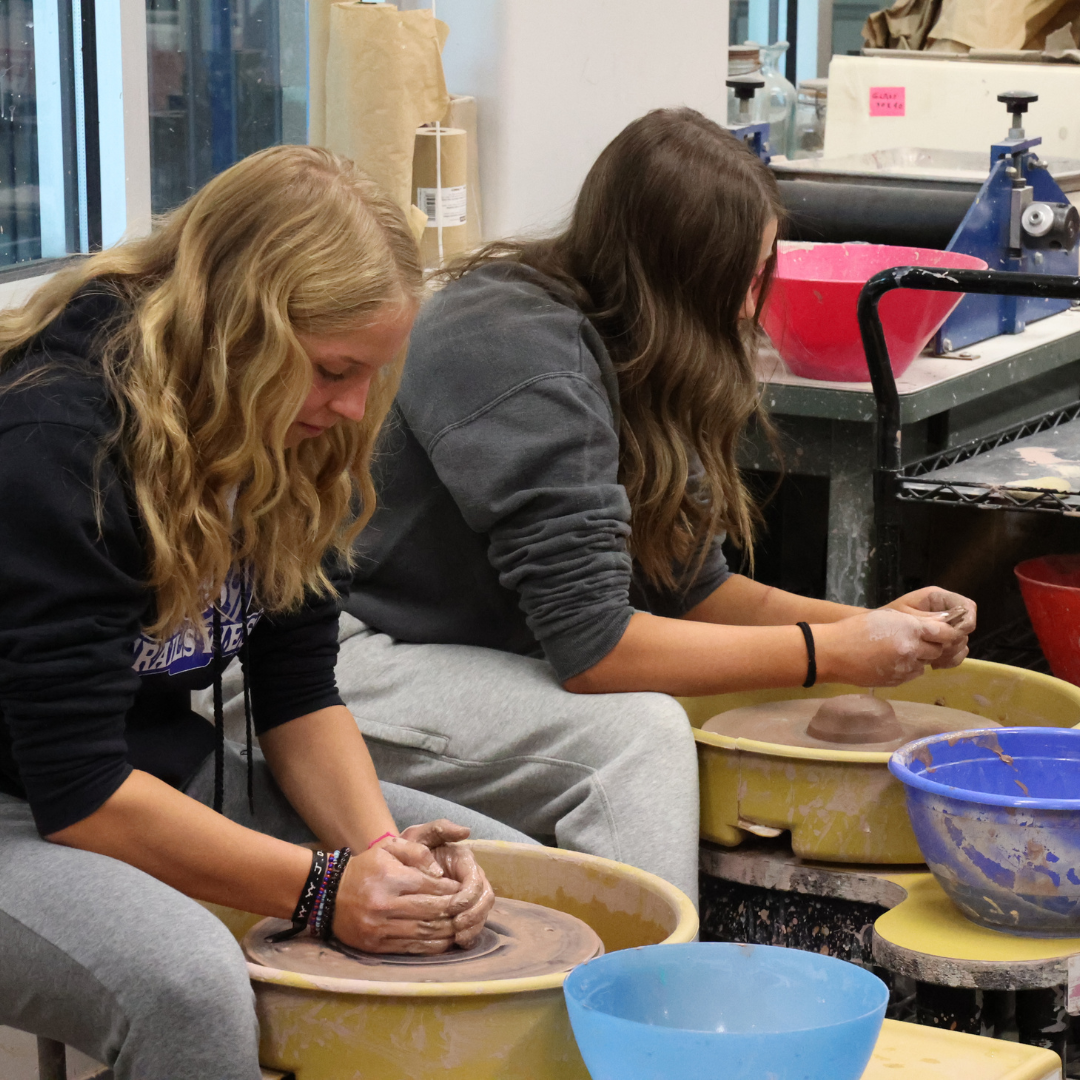5 Different Teaching Styles (And What They Mean for Students)
Each teacher brings their own style of education to the classroom. We've broken down 5 common teaching styles and why it matters to the student experience.
BY Hannah Buchholz
Classroom learning today is worlds apart from the high school experience of Baby Boomers, Gen X, or even Millennials. While technology has revolutionized how we teach and learn, it's the students themselves—their unique personalities, goals, and needs—who are reshaping the classroom experience.
High schools today, including Lutheran High School, are more focused than ever on preparing students for their next educational step - such as college - and beyond. There is a push to help teach students 21st Century skills (higher-level thinking skills that will help students succeed in their workplaces). LuHi teachers continuously adapt their teaching styles to equip students with the critical thinking skills, adaptability, independence, and knowledge required to thrive in their future workplaces and communities.
We hope this preparation sends them into their communities ready to serve others. To read more about why we think this is the primary purpose of education, see this blog post: The Purpose of Education
For parents and students, understanding the range of teaching styles used in high school—especially at LuHi—can help you better navigate and embrace the classroom experience.
The Five Basic Teaching Styles
While there is no official list of teaching styles, the following five methods—adapted from insights shared by Concordia University, Portland—are commonly found in classrooms today:
- The Authority - A traditional lecture-style teacher and classroom experience. This is considered a “traditional” experience because it is tried and true -- teachers have been using this style for centuries to convey important information to students.
- The Demonstrator - Similar to the authority, the demonstrator goes beyond talking about the material and also shows students what they are learning. This is typically done using multimedia presentations, activities, and demonstrations.
- The Facilitator - This style helps students learn how to ask the right questions and think critically in order to gain the knowledge needed, then process it, in order to make a determination.
- The Delegator - With a focus on group work, the delegator often places teachers in the role of observer. He or she places students together into groups to work toward common goals.
- The Hybrid - This “catch-all” style allows teachers to work to their strengths while leaving the flexibility to adapt to the material, or to student strengths.
Teaching at Lutheran High: An Ever-Evolving Approach
At Lutheran High, we embrace various teaching styles to meet the differing needs of our students. Most of our classrooms reflect a hybrid approach, combining demonstrations, discussions, project-based learning, and real-world applications. We aim to go beyond rote memorization and foster true understanding that prepares students for life outside the classroom.
Our faculty continually refine their teaching methods, keeping pace with educational changes and student and parent feedback. These conversations ensure our teachers stay current with the skills and knowledge students need to excel in college and their future careers.
.png?width=1080&height=1080&name=Oct%20(4).png)
A Highly Relational Environment
At LuHi, we are committed to nurturing a highly relational environment of collaboration to achieve success. Teachers encourage students to take ownership of their learning by asking questions, seeking feedback, and fully engaging in their education.
Our teachers take student input seriously, incorporating feedback from classroom evaluations and discussions to improve their courses. This dedication to growth ensures every student is equipped to excel academically, personally, and spiritually.
High school is a time for students to thrive, come into their own, and discover what they are passionate about. We are not interested in students merely getting by over their four years with us. The best way for students to thrive is to actively participate in their education.
We’ve found students are much more likely to get excited about their education when they have a supportive community behind them. It’s why having highly relational and highly talented teachers is one of our core values.
Your Role in Learning
While teaching styles play a vital role in shaping the classroom experience, the most important factor in a student’s success is their willingness to take ownership of their education. At LuHi, we empower students to be active participants in their learning journey, setting the stage for success in high school and for years to come.
By fostering strong relationships and continuously evolving teaching methods, LuHi ensures students are prepared to navigate the complexities of life with confidence, curiosity, and faith.
Originally published in 2019, updated in 2025 for accuracy.




